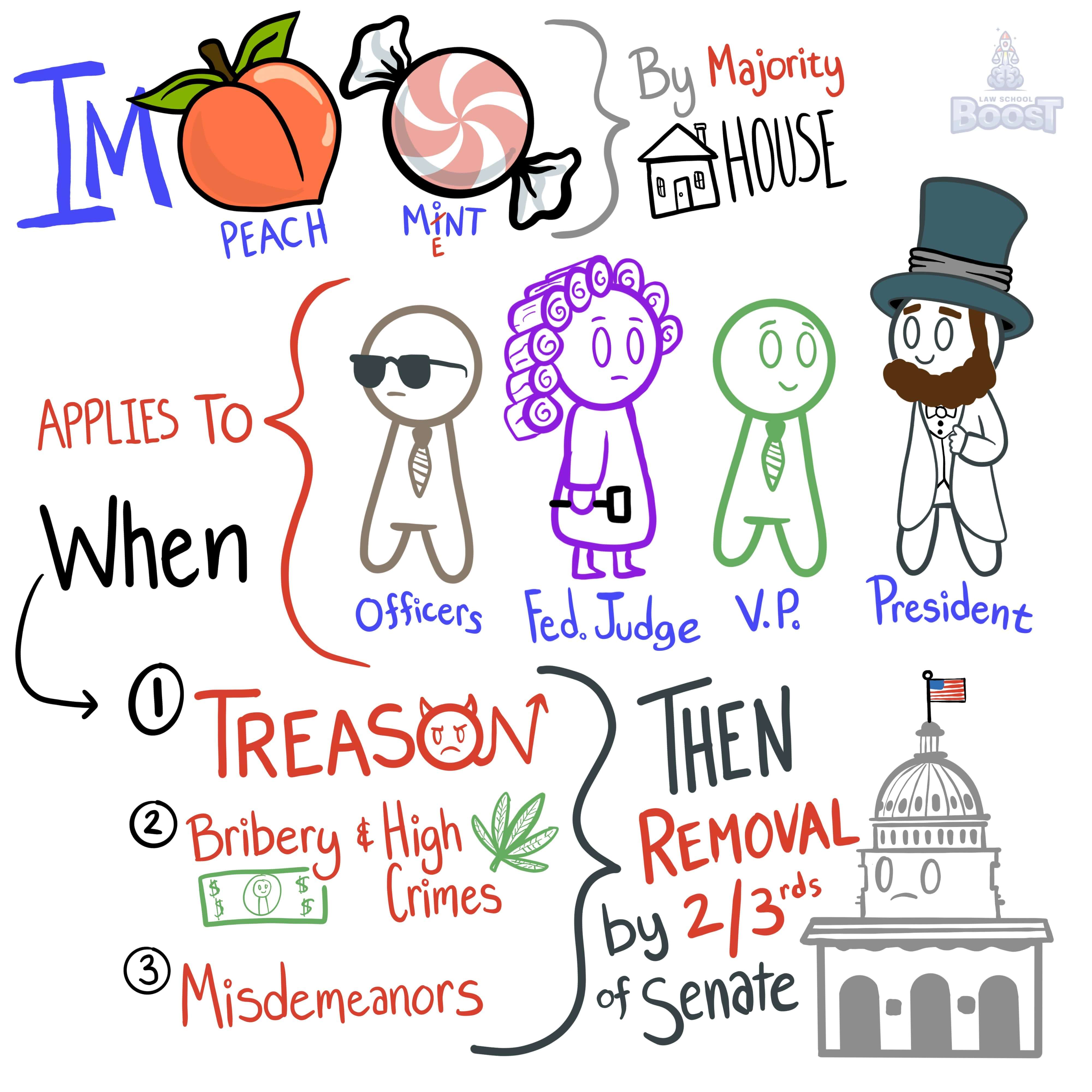🇺🇸
Constitutional Law • Domestic Affairs
CONLAW#034
Legal Definition
The President, Vice President, federal judges, and officers of the United States can be impeached and removed from office for treason, bribery, or high crimes and misdemeanors. The house has the sole power to impeach (by majority vote), but the Senate has the power to conduct a trial to convict (by two-thirds vote) and remove.
Plain English Explanation
The Constitution allows Congress to remove top leaders and judges from office if they commit serious abuses of power. This process is called "impeachment and removal." First, the House of Representatives brings formal charges against the official, like accusing the President of bribery. This is like a prosecutor bringing charges against a criminal defendant. Then the Senate holds a trial to determine if the charges are true. The Senate acts like a jury in this trial. If two-thirds of Senators vote that the official is guilty, then the official is removed from office. This power exists so that corrupt leaders can be held accountable for abusing their authority.
Visual Aids

Related Concepts
Under Youngstown, when is the President's power as Chief Executive most and least powerful regarding domestic affairs?
What are the limitations of the President's immunity?
What are the limitations of the President's pardon power?
When may the president invoke executive privilege?
Who has the appointment power, and what positions are appointable?
Who has the removal power and what are its limitations?


